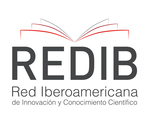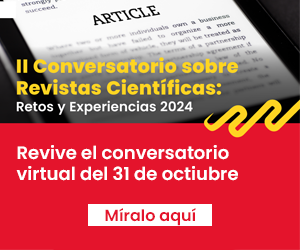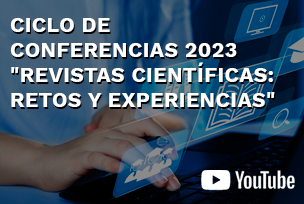Salud mental intergeneracional
DOI:
https://doi.org/10.20453/rnp.v86i1.4465Palavras-chave:
Epigenómica, genética, trastornos mentales, salud mentalResumo
La salud mental en distintas generaciones relacionadas entre sí es tema de creciente interés general y científico. El propósito de esta revisión narrativa, necesariamente limitada, es actualizar el conocimiento científico existente, para lo cual se ha seleccionado un total de 72 estudios cualificados de investigación. Los resultados muestran pruebas adecuadas de que la información genética heredable va acompañada de marcas epigenéticas. La combinación de modificaciones genéticas y epigenéticas es importante para determinar la diversidad fenotípica de los progenitores y sus descendientes, y también puede generar múltiples estados psicopatológicos. La llamada programación fetal es un delicado proceso adaptativo de crecimiento prenatal que puede presentar interferencias mórbidas. Existen hipótesis sobre los mecanismos epigenéticos por medio de los cuales las experiencias pre y posnatales programan la reactividad del niño ante situaciones de estrés y promueven el desarrollo de fenotipos adaptativos. Los patrones y procesos del distanciamiento intergeneracional entre familias son sumamente complejos, por lo que es difícil puntualizar conclusiones válidas sobre la salud mental entre generaciones vinculadas. Puede afirmarse, sin embargo, que trastornos mentales graves afectan con frecuencia a múltiples generaciones. La información y el conocimiento sobre este fenómeno requieren, sin duda, de numerosas investigaciones de alta calidad.
Downloads
Referências
Newman S, Smith TB. Developmental theories as the basis for intergenerational programs. In: Newman S, ed. Intergenerational programs: Past, present and future. Washington, US-DC: Taylor & Francis; 1997.
Sánchez-Martínez M, Kaplan M, Sáez-Carreras J. Programas intergeneracionales. Guía introductoria. Madrid, ES: Ministerio de Sanidad y Política Social; 2010.
Kirsha E, Frydenbergb E, Deans J. Benefits of an intergenerational program in the early years. J Early Child Educ Res. 2021; 10(2):140–164.
Peters R, Ee N, Ward SA, Kenning G, Radford K, Goldwater M, et al. Intergenerational programmes bringing together community dwelling non-familial older adults and children: A systematic review. Arch Gerontol Geriatr. 2021; 94:104356.
Pillemer K, Nolte J, Schultz L, Yau H, Henderson CR-Jr, Cope MT, et al. The benefits of intergenerational wisdom-sharing: A randomized controlled study. Int J Environ Res Public Health. 2022; 19(7):4010.
Alvarez M, Bleich A, Donohue K. Genotypic variation in the persistence of transgenerational responses to seasonal cues. Evolution. 2020; 74(10):2265–2280.
Hime GR, Stonehouse S, Pang TY. Alternative models for transgenerational epigenetic inheritance: Molecular psychiatry beyond mice and man. World J Psychiatry. 2021; 11(10):711–735.
Davis EP, Glynn LM, Schetter CD, Hobel C, Chicz-Demet A, Sandman CA. Prenatal exposure to maternal depression and cortisol influences infant temperament. J Am Acad Child Adolesc Psychiatry. 2007; 46(6):737–746.
Kling JL, Mistry-Patel S, Peoples SG, Caldera DR, Brooker RJ. Prenatal maternal depression predicts neural maturation and negative emotion in infants. Infant Behav Dev. 2023; 70:101802.
Xavier MJ, Roman SD, Aitken RJ, Nixon B. Transgenerational inheritance: How impacts to the epigenetic and genetic information of parents affect offspring health. Hum Reprod Update. 2019; 25(5):518–540.
Ben-Maamar M, Sadler-Riggleman I, Beck D, Skinner MK. Epigenetic transgenerational inheritance of altered sperm histone retention sites. Sci Rep. 2018; 8(1):5308.
Carlton PM, Davis RE, Ahmed S. Nematode chromosomes. Genetics. 2022; 221(1):iyac014.
Posner R, Toker IA, Antonova O, Star E, Anava S, Azmon E, et al. Neuronal small RNAs control behavior transgenerationally. Cell. 2019; 177(7):1814–1826.
Burton NO, Willis A, Fisher K, Braukmann F, Price J, Stevens L, et al. Intergenerational adaptations to stress are evolutionarily conserved, stress-specific, and have deleterious trade-offs. eLife. 2021; 10:e73425.
Reyes-Contreras M, Taborsky B. Stress axis programming generates long-term effects on cognitive abilities in a cooperative breeder. Proc Biol Sci. 2022; 289(1975):20220117.
Bertolín-Guillén JM. Mental health and validity of the psycho-neurobiological stress model. Am J Psychiatr Res Rev. 2022; 5(34):1–11.
Jamshidi J, Schofield PR, Gatt JM, Fullerton JM. Phenotypic and genetic analysis of a wellbeing factor score in the UK Biobank and the impact of childhood maltreatment and psychiatric illness. Transl Psychiatry. 2022; 12(1):113.
O'Donnell KJ, Meaney MJ. Fetal origins of mental health: The developmental origins of health and disease hypothesis. Am J Psychiatry. 2017; 174(4):319–328.
Robinson R, Lahti-Pulkkinen M, Heinonen K, Reynolds RM, Räikkönen K. Fetal programming of neuropsychiatric disorders by maternal pregnancy depression: A systematic mini review. Pediatr Res. 2019; (85):134–145.
Lautarescu A, Pecheva D, Nosarti C, Nihouarn J, Zhang H, Victor S, et al. Maternal prenatal stress is associated with altered uncinate fasciculus microstructure in premature neonates. Biol Psychiatry. 2020; 87(6):559–569.
Serpeloni F, Radtke K, de-Assis SG, Henning F, Nätt D, Elbert T. Grandmaternal stress during pregnancy and DNA methylation of the third generation: An epigenome-wide association study. Transl Psychiatry. 2017; 7(8):e1202.
Polinski KJ, Putnick DL, Robinson SL, Schliep KC, Silver RM, Guan W, et al. Periconception and prenatal exposure to maternal perceived stress and cord blood DNA methylation. Epigenet Insights. 2022; 15:25168657221082045.
Stonawski V, Roetner J, Goecke TW, Fasching PA, Beckmann MW, Kornhuber J, et al. Genome-wide DNA methylation patterns in children exposed to nonpharmacologically treated prenatal depressive symptoms: Results from 2 independent cohorts. Epigenet Insights. 2020; 13:2516865720932146.
Granger SJ, Glynn LM, Sandman CA, Small SL, Obenaus A, Keator DB, et al. Aberrant maturation of the uncinate fasciculus follows exposure to unpredictable patterns of maternal signals. J Neurosci. 2021; 41(6):1242–1250.
Rolls ET, Cheng W, Feng J. The orbitofrontal cortex: Reward, emotion and depression. Brain Commun. 2020; 2(2): fcaa196.
McCreary JK, Truica LS, Friesen B, Yao Y, Olson DM, Kovalchuk I, et al. Altered brain morphology and functional connectivity reflect a vulnerable affective state after cumulative multigenerational stress in rats. Neuroscience. 2016; 330:79–89.
Kunz E. Henri Laborit and the inhibition of action. Dialogues Clin Neurosci. 2014; 16(1):113–117.
Chan JC, Nugent BM, Bale TL. Parental advisory: Maternal and paternal stress can impact offspring neurodevelopment. Biol Psychiatry. 2018; 83(10):886–894.
Thomas KN, Zimmel KN, Basel A, Roach AN, Mehta NA, Thomas KR, et al. Paternal alcohol exposures program intergenerational hormetic effects on offspring fetoplacental growth. Front Cell Dev Biol. 2022; 10:930375.
England-Mason G, Martin JW, MacDonald A, Kinniburgh D, Giesbrecht GF, Letourneau N, et al. Similar names, different results: Consistency of the associations between prenatal exposure to phthalates and parent-ratings of behavior problems in preschool children. Environ Int. 2020; 142:105892.
England-Mason G, Grohs MN, Reynolds JE, MacDonald A, Kinniburgh D, Liu J, et al. White matter microstructure mediates the association between prenatal exposure to phthalates and behavior problems in preschool children. Environ Res. 2020; 182:109093.
Day DB, Collett BR, Barrett ES, Bush NR, Swan SH, Nguyen RHN, et al. Phthalate mixtures in pregnancy, autistic traits, and adverse childhood behavioral outcomes. Environ Int. 2021; 147:106330.
Kallak TK, Fransson E, Bränn E, Berglund H, Lager S, Comasco E, et al. Maternal prenatal depressive symptoms and toddler behavior: An umbilical cord blood epigenome-wide association study. Transl Psychiatry. 2022; 12(1):186.
Wu Y, Lu YC, Jacobs M, Pradhan S, Kapse K, Zhao L, et al. Association of prenatal maternal psychological distress with fetal brain growth, metabolism, and cortical maturation. JAMA Netw Open. 2020; 3(1):e1919940.
Wu Y, Espinosa KM, Barnett SD, Kapse A, Quistorff JL, Lopez C, et al. Association of elevated maternal psychological distress, altered fetal brain, and offspring cognitive and social-emotional outcomes at 18 months. JAMA Netw Open. 2022; 5(4):e229244.
Cerutti J, Lussier AA, Zhu Y, Liu J, Dunn EC. Associations between indicators of socioeconomic position and DNA methylation: a scoping review. Clin Epigenetics. 2021; 13(1):221.
Montjean D, Neyroud AS, Yefimova MG, Benkhalifa M, Cabry R, Ravel C. Impact of endocrine disruptors upon non-genetic inheritance. Int J Mol Sci. 2022; 23(6):3350.
Rebuzzini P, Fabozzi G, Cimadomo D, Ubaldi FM, Rienzi L, Zuccotti M, et al. Multi- and transgenerational effects of environmental toxicants on mammalian reproduction. Cells. 2022; 11(19):3163.
Cardenas A, Faleschini S, Cortes-Hidalgo A, Rifas-Shiman SL, Baccarelli AA, DeMeo DL, et al. Prenatal maternal antidepressants, anxiety, and depression and offspring DNA methylation: Epigenome-wide associations at birth and persistence into early childhood. Clin Epigenetics. 2019; 11(1):56.
Rodriguez-López LM, Bernal-Restrepo MF, Giraldo-Arango SA. Patología psiquiátrica, una perspectiva desde la epigenética en gestantes e infantes. Sci Educ Med J. 2022; 5(2):5–18. https://medicaljournal.com.co/index.php/mj/issue/view/9/14
Nöthling J, Malan-Müller S, Abrahams N, Hemmings S, Seedat S. Epigenetic alterations associated with childhood trauma and adult mental health outcomes: A systematic review. World J Biol Psychiatry. 2020; 21(7):493–512.
Neves I, Dinis-Oliveira RJ, Magalhães T. Epigenomic mediation after adverse childhood experiences: A systematic review and meta-analysis. Forensic Sci Res. 2021; 6(2):103–14.
Conradt E, Adkins DE, Crowell SE, Raby KL, Diamond LM, Ellis B. Incorporating epigenetic mechanisms to advance fetal programming theories. Dev Psychopathol. 2018; 30(3):807–824.
Bertolín-Guillén JM. Homicidio y suicidio: biología y psicopatología. Psicosom Psiquiatr. 2022; 21:30–9.
Barlow FK. Nature vs. nurture is nonsense: On the necessity of an integrated genetic, social, developmental, and personality psychology. Aust J Psychol. 2019; 71(1):68–79.
Royuela-Rico A. Consanguinidad y enfermedad mental grave en los primeros Borbones españoles. Rev Neurol. 2020; 71(2):61–8.
Maguire A, Tseliou F, O'Reilly D. Consanguineous marriage and the psychopathology of progeny: A population-wide data linkage study. JAMA Psychiatry. 2018; 75(5):438–446.
Gilligan M, Suitor JJ, Pillemer K. Estrangement between mothers and adult children: The role of norms and values. J Marriage Fam. 2015; 77(4):908–920.
Gilligan M, Suitor JJ, Pillemer K. Patterns and processes of intergenerational estrangement: A qualitative study of mother-adult child relationships across time. Res Aging. 2022; 44(5-6):436–447.
United Nations. Political declaration and Madrid international plan of action on ageing. Second world assembly on ageing, Madrid, Spain 8-12 april 2002. New York, US: United Nations; 2002.
United Nations Population Fund (UNFPA), HelpAge International, eds. Ageing in the twenty-first century: A celebration and a challenge. London, UK: Pureprint Group; 2012.
Verhaar S, Matthewson ML, Bentley C. The impact of parental alienating behaviours on the mental health of adults alienated in childhood. Children (Basel). 2022; 9(4):475.
United Nations Committee on the Rights of the Child (CRC). General Comment No. 8 (2006): General comment No. 8 (2006): The right of the child to protection from corporal punishment and other cruel or degrading forms of punishment (Arts. 19; 28, Para. 2; and 37, inter alia) 2 March 2007. [Citado el 24 de marzo de 2023]. Disponible en: https://www.refworld.org/docid/460bc7772.html
Petrovic M, Injac Stevovic L. Intergeneration transmission of violence in forensic patients with a diagnosis of schizophrenia and psychosis: Was parental alcoholic abuse a significant factor? Front Psychiatry. 2021; 12:765279.
Warrier V, Kwong ASF, Luo M, Dalvie S, Croft J, Sallis HM, et al. Gene-environment correlations and causal effects of childhood maltreatment on physical and mental health: A genetically informed approach. Lancet Psychiatry. 2021; 8(5):373–386.
Pozo-Querol M. Guía de recomendaciones para la participación de las personas mayores en la red de ciudades y comunidades amigables. Madrid: Instituto de Mayores y Servicios Sociales; 2022.
European Commission, Secretariat-General. Green paper on ageing fostering solidarity and responsibility between generations. Brussels, BE: European Commission; 2021.
McKinney C, Franz AO. Latent profiles of perceived parental psychopathology: Associations with emerging adult psychological problems. Child Psychiatry Hum Dev. 2019; 50(3):411–24.
Sell M, Radicke A, Adema B, Daubmann A, Kilian R, Stiawa M, et al. Parents with mental illness: Parental coping behavior and its association with children's mental health. Front Psychiatry. 2021; 12:737861.
Harman JJ, Kruk E, Hines DA. Parental alienating behaviors: An unacknowledged form of family violence. Psychol Bull. 2018; 144(12):1275–1299.
Harman JJ, Matthewson ML, Baker AJL. Losses experienced by children alienated from a parent. Curr Opin Psychol. 2022; 43:7–12.
Hashemi L, Fanslow J, Gulliver P, McIntosh T. Intergenerational impact of violence exposure: Emotional-behavioural and school difficulties in children aged 5-17. Front Psychiatry. 2022; 12:771834.
Rullas-Trincado M. Roles parentales en personas con trastorno mental grave. En: Prego-Orca R, Alcamí-Pertejo M, Mollejo-Aparicio E, coord. Parentalidad, perinatalidad y salud mental en la primera infancia. Madrid, ES: Asociación Española de Neuropsiquiatría; 2018, p. 105–123.
Radley J, Grant C, Barlow J, Johns L. Parenting interventions for people with schizophrenia or related serious mental illness. Cochrane Database Syst Rev. 2021; 10(10):CD013536.
Landstedt E, Almquist YB. Intergenerational patterns of mental health problems: The role of childhood peer status position. BMC Psychiatry. 2019; 19(1):286.
Fekadu W, Craig TKJ, Kebede D, Medhin G, Fekadu A. Multidimensional and intergenerational impact of severe mental disorders. eClinicalMedicine. 2021; 41:101151.
Law E, Fisher E, Eccleston C, Palermo TM. Psychological interventions for parents of children and adolescents with chronic illness. Cochrane Database Syst Rev. 2019; 3(3):CD009660.
Martín AM, De-la-Fuente L, Hernández A, Zaldívar F, Ortega-Campos E, García-García J. Psychosocial profile of juvenile and adult offenders who acknowledge having committed child-to-parent violence. Int J Environ Res Public Health. 2022; 19(1):601.
Aktar E, Qu J, Lawrence PJ, Tollenaar MS, Elzinga BM, Bögels SM. Fetal and infant outcomes in the offspring of parents with perinatal mental disorders: Earliest influences. Front Psychiatry. 2019; 10:391.
Beckmann L, Bergmann MC, Fischer F, Mößle T. Risk and protective factors of child-to-parent violence: A comparison between physical and verbal aggression. J Interpers Violence. 2021; 36(3-4):1049–1067.
Ministerio de Sanidad. Estrategia de salud mental del Sistema Nacional de Salud, período 2022-2026. Madrid, ES: Ministerio de Sanidad, Secretaría General Técnica; 2022.
European Observatory Health Policy Series 2016-. [Citado 24 de marzo de 2023]. Disponible en: https://www.ncbi.nlm.nih.gov/books/NBK447097/















 A RNP é distribuída ao abrigo de uma
A RNP é distribuída ao abrigo de uma